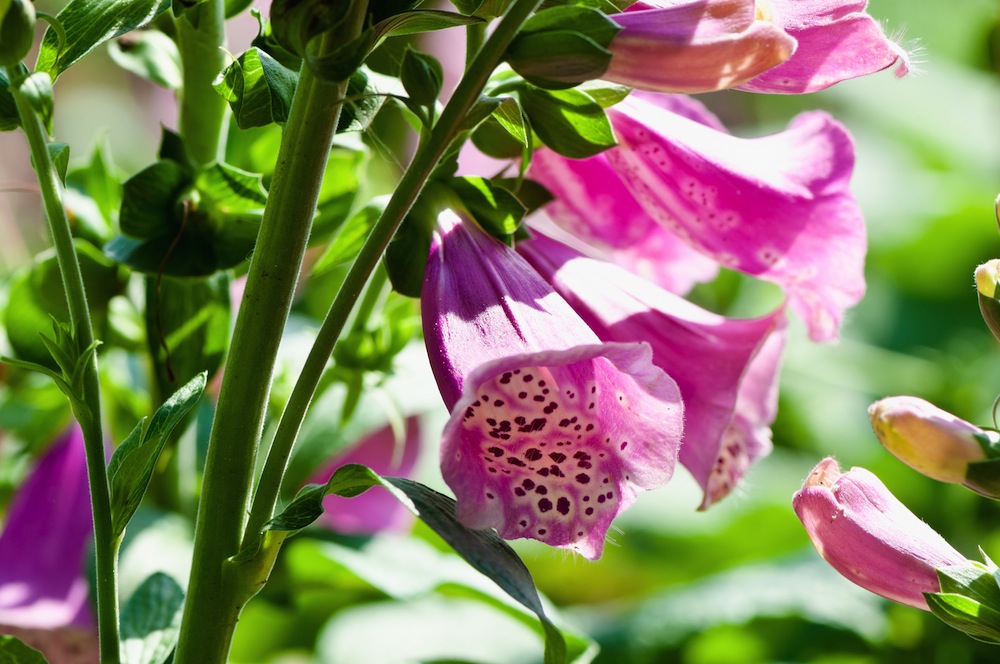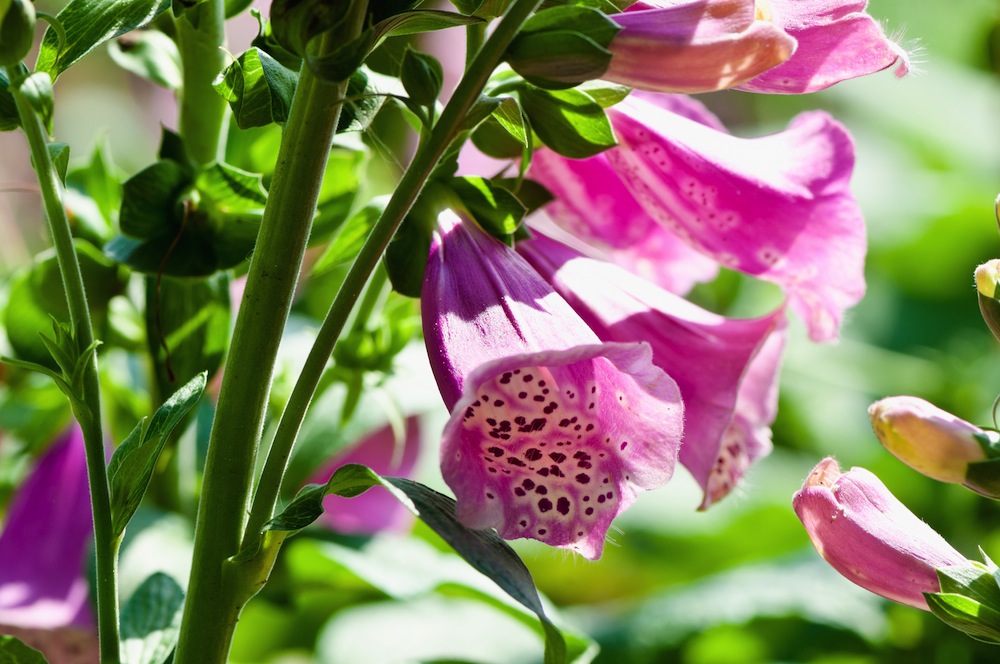Keeping summer alive
Provided the sunshine continues through August and into September, summer bedding, perennials, baskets and tubs will continue to give good colour into early autumn.
Over the past few years, there has been a flurry of new herbaceous perennials with new types of foxglove, delphinium and lupin making their debut alongside the newer plants of perennial salvia, gaura and heuchera. Each can add a frisson of interest to borders packed with tried-and-tested favourites.
Baskets and tubs
Summer baskets and tubs should still be in their prime through September and possibly into October… as long as we don’t get any early frosts. Continue to dead head and feed your flowers regularly and you should be rewarded with a late show of colour.
Take the edge off the soul-destroying job of emptying your faded summer baskets by replanting them for a winter display. Pansies, violas (including the new trailing Teardrop variety), polyanthus, heathers, ivies plus a few spring flowering bulbs make for a heartwarming cold-weather display that will cheer you up every time you pass your front door. Garden centres now sell smaller sized shrubs such as gaultherias, leucothoe, skimmias and grasses that are suitable for tubs and can be planted out in the garden next spring.
Activate borders for winter
Once borders have been cleared of summer bedding, replant with winter pansies, violas, sweet william and wallflowers. Hopefully we’ll have some field-grown wallflowers available from the end of September. They give excellent value for money, flowering in the spring alongside those longed-for bulbs.
Harvest festival
Harvest onions and potatoes now – lift onions and allow to dry out where they’ve been growing before storing. Potatoes should be stored in a cool but frost-free environment; hessian sacks from garden centres are ideal for this purpose. Keep picking your courgettes and runner beans so they don’t get stringy – runners freeze beautifully to give you that garden-fresh nutrient boost right in the middle of winter. Pick any tomatoes before the first frosts hit, and ripen inside or make chutney; alternatively, Nigel Slater has an excellent way with green tomatoes, coating them in beaten egg and polenta and frying.
I’ve been asked recently about blossom end rot on tomatoes, and it does seem to have been more prevalent than usual. This is a physiological disorder, not a disease or pest and can be worse on humid days which limit the amount of water the plant roots can take up. Calcium deficiency is another factor; though most composts contain calcium, regular watering is essential to ensure the mineral is taken up by the roots and delivered to the fruit. Water plants several times a day in very hot weather, ensure good ventilation and ideally give a foliar spray of calcium – Chempak do a trace element calcium pack.
A taste of olde England
Pick early apples and pears as they become ripe. You won’t need any encouragement to eat the earlier varieties straight away, storing later ripening ones to enjoy later in the year. Cover autumn-fruiting raspberries against birds and prune out during winter as the autumn varieties fruit on the new season’s growth each year.
Autumn jobs
Dead head roses, trimming back any very long growths. Remove any foliage with rust or blackspot, making sure you dispose of it rather than putting on the compost heap. Remember to clean up any debris under rose bushes as blackspot will overwinter ready to re-infect bushes next year.
Clean out greenhouses before putting in overwintering plants and insulate with bubble wrap. Check heaters are ready to go when the first frosts hit. As you bring in plants to over winter, watch out for vine weevil larvae, especially on fuchsias. If you see signs, drench the compost in one of the chemicals available for their control.
Buy prepared hyacinth bulbs for Christmas flowering and plant them in bowls with bulb compost by mid-September. Give them a drink and put in a cool, dark place, bringing gradually into the light and warmth once the shoots are around 3cm high.
Overwintering onions, shallots and broad beans will soon be in stock; plant them as soon as you can and you’ll get an early maturing crop next year.
It’s worth mentioning that by the end of this year that a number of garden weed killers, insecticides and fungicides will no longer be available in garden centres. Whilst on one hand this is a good thing (see Ed Andrews’ story on page xxx on nocturnal wildlife to see how insects have been affected by pesticides), it will make it more difficult to control some of the pests and diseases which seem to have been in abundance this year.
At the moment it seems there will be no products for use against apple and pear scab or for any other diseases of fruit trees, so it’s all the more important to use a winter wash on fruit trees once foliage has dropped.
Happy gardening!
Gardening tips are provided by Ann Winwood of Lealans Garden Centre, Shipley.







